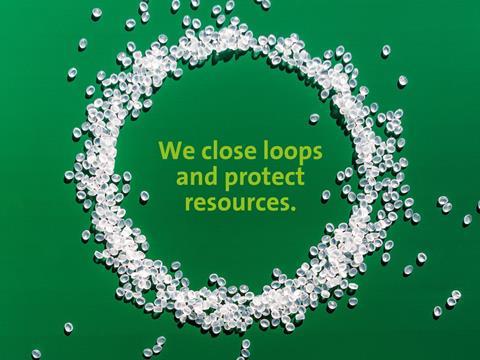
SÜDPACK has acquired additional shares in CARBOLIQ – intending to use its direct oiling technology to chemically recycle flexible packaging and complex multilayer films – and appointed a new managing director, BU Functional Films & Compounds manager Dick Hardow.
SÜDPACK anticipates that the acquisition of a majority stake in CARBOLIQ, which was signed on 15th December, will substantiate its position as a leader in pursuit of circularity for flexible films and packaging. It claims to be the only flexible film manufacturer that currently has direct access to chemical recycling capacities.
CEO Erik Bouts describes the moves as the “logical next step”, adding: “We regard CARBOLIQ technology as an indispensable building block in our industry’s process of transformation towards a circular economy.”
Dick Hardow was BU Functional Films & Compounds manager at SÜDPACK when he was named as managing director. He adds: “We believe quite profoundly in the benefits of this advanced technology compared to other oiling processes.
“In terms of energy consumption and the processing window for a broad range of recyclables, CARBOLIQ technology offers significant advantages in comparison to other processes from our point of view.”
This refers to CARBOLIQ’s advanced thermos-chemical process referred to as direct oiling. As opposed to other pyrolysis technologies, it does not require its infeed materials to be polyolefin-based – meaning that it can process contaminated and mixed plastics, as well as flexible packaging and complex multilayer films.
Furthermore, it is a single-stage process that only requires temperatures below 400°C and uses friction to introduce energy to the material. SÜDPACK asserts that, as a result, direct oiling leads to ‘relatively low’ energy consumption, and hopes that its utilization will demonstrate the company’s commitment to closing the loop on plastics and uplifting chemical recycling as a complementary recycling technology.
The current concept for the CARBOLIQ plant is designed to produce an output of around 10,000 tons every year, based on high-caloric fractions and fully continuous operation. The secondary raw material is distributed under the name Circular Liquid Resource, or CLR, and is said to serve as an appropriate substitute for fossil resources due to its similar properties with fossil oil and resultant products.
Hardow continues: “We expect chemical recycling to play a key role in the context of the upcoming PPWR (Packaging & Packaging Waste Regulation), not least to make it possible to meet the required recyclate use rates, particularly in the manufacturing of food packaging.
“In our opinion, it will not be possible to manage the transition to a circular economy with mechanical recycling on its own, but rather with a healthy mix of a broad variety of technologies.”
In related news, Borealis has acquired advanced mechanical recycler Integra Plastics AD. The company hopes to drive up its recycling capacity by 20,000 tons and meet consumer demand for sustainable solutions.
LyondellBasell also hopes to improve recycling rates and achieve a circular economy for plastics in the United States by acquiring 25% equity ownership of Cyclyx International, a joint venture between Agilyx and ExxonMobil.
If you liked this article, you might also enjoy:
The L’Oréal approach to packaging sustainability
The way we talk about plastic needs to change – here’s how to get it right
What steps is Apple taking to make its packaging more sustainable?













No comments yet